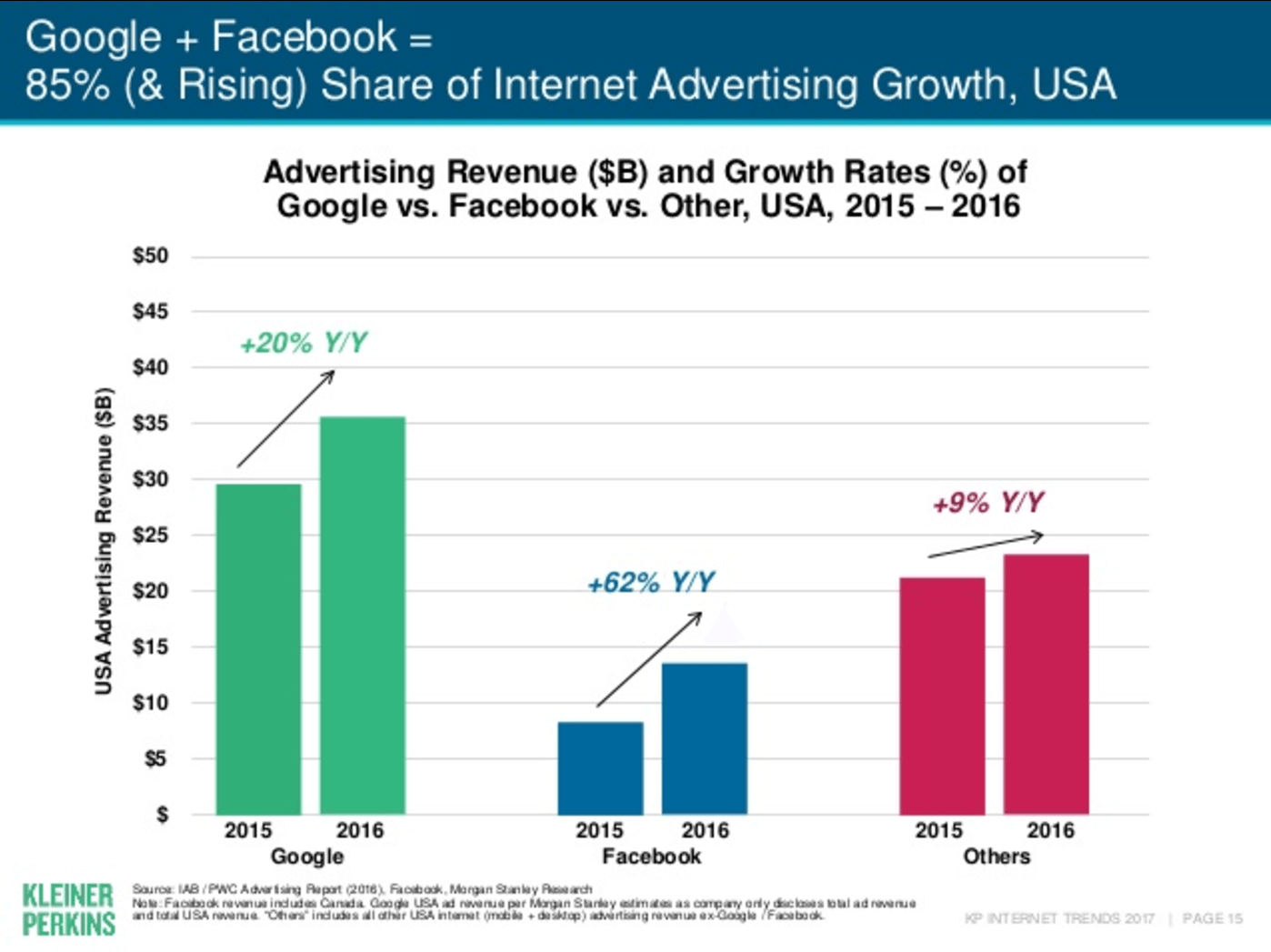Google, Apple, and other tech giants have targeted ad tech for disruption. And when they set their sites on a target, they rarely miss. Why native ad blockers are such a big deal Earlier this month, Google and Apple both announced they’d be launching native blockers for their browsers (Chrome and Safari, respectively). Basically, the browser automatically purges cookies from websites you don’t use—meaning after a month of inactivity, sites can’t use that data for re-targeting programs and other behavioral/identify-dependent advertising. The result is that users are only tracked by websites they actually use. Unlike Apple, which makes the majority of its revenue from hardware, Google is—at its core—an ad tech company. Well, they’re whatever Google says they are. Technically, the company says they will follow the standards set by the trade group Coalition for Better Ads. Fordham Law scholar Mark Patterson told Vox that the group is basically a “cartel orchestrated by Google.” The result is that Google can set standards for digital advertising that align with their best interests. It also squashes ad tech companies that can’t or don’t meet these standards, driving more ad buyers to Google’s “approved” advertising.
For years, ad tech CEOs have agonized over various crises—the rise in ad blocking, rampant bot fraud, a pervasive lack of quality control. Yet in the end, it may be none of these worrisome trends that puts these CEOs out of a job.
Instead, the threat may come from a familiar set of names. Google, Apple, and other tech giants have targeted ad tech for disruption. And when they set their sites on a target, they rarely miss.
Why native ad blockers are such a big deal
Earlier this month, Google and Apple both announced they’d be launching native blockers for their browsers (Chrome and Safari, respectively).
Apple’s blocker, called Intelligent Tracking Prevention (ITP), uses machine learning techniques to block tracking scripts used by most websites. Basically, the browser automatically purges cookies from websites you don’t use—meaning after a month of inactivity, sites can’t use that data for re-targeting programs and other behavioral/identify-dependent advertising.
The result is that users are only tracked by websites they actually use. Some cookies are legitimately useful—such as ones that remember your preferences—so it makes sense that Apple would only shutter cookies from sites you rarely or never visit. But it also means ad exchanges have much less data to work with from Safari users. So far, the blocker is only on the desktop version of Safari, though many have hypothesized (myself included) that Apple is moving towards positioning its products as premium, private, and mostly ad tech-free environments.
Google’s blocker goes much further. On the surface, that’s surprising. Unlike Apple, which makes the majority of its revenue from hardware, Google is—at its core—an ad tech company. Around 90 percent of its…

COMMENTS